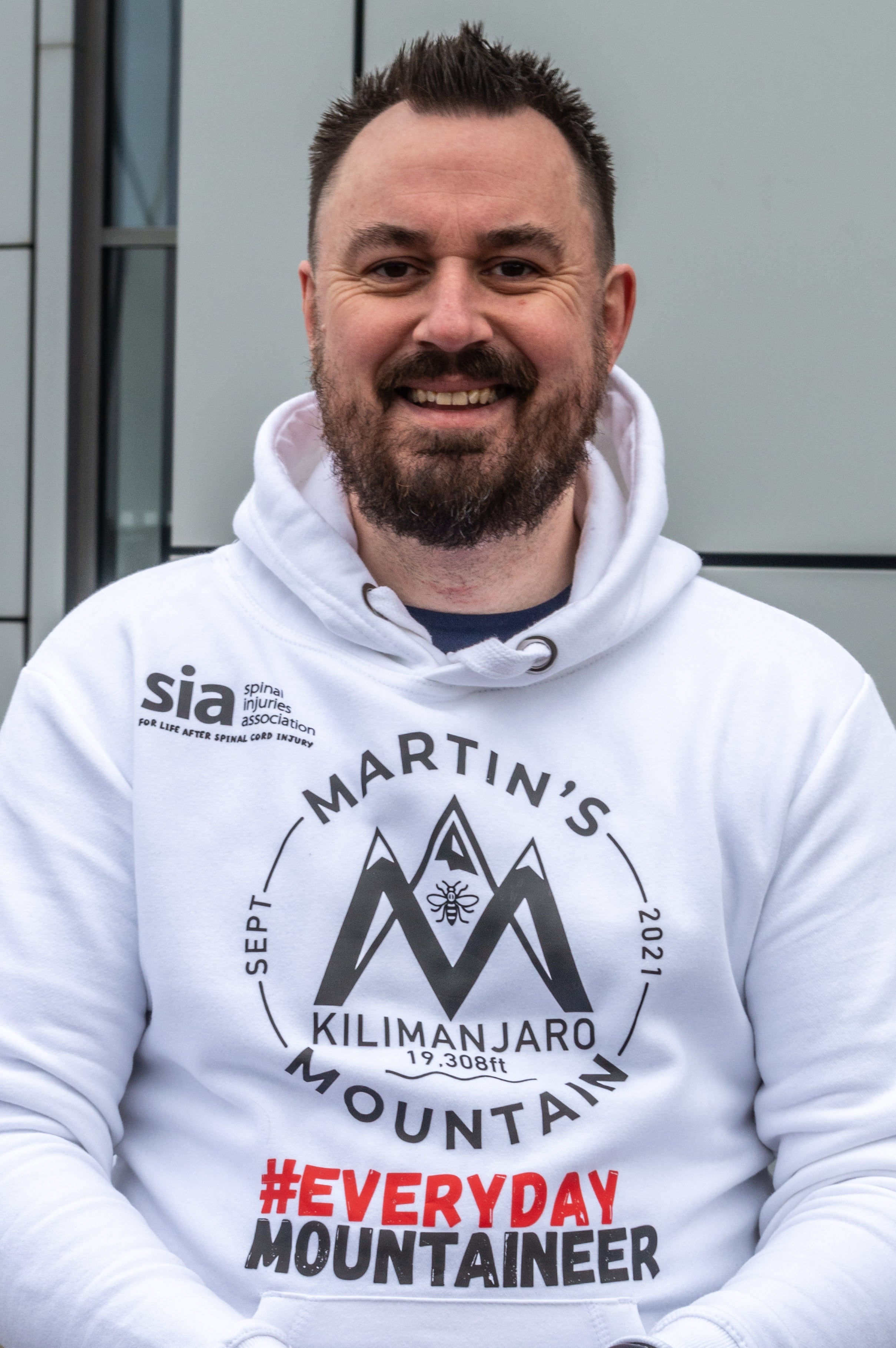Arena bombing survivor climbs mountain in wheelchair
Martin Hibbert wanted to ‘move mountains’ to get more help for disabled people

Your support helps us to tell the story
From reproductive rights to climate change to Big Tech, The Independent is on the ground when the story is developing. Whether it's investigating the financials of Elon Musk's pro-Trump PAC or producing our latest documentary, 'The A Word', which shines a light on the American women fighting for reproductive rights, we know how important it is to parse out the facts from the messaging.
At such a critical moment in US history, we need reporters on the ground. Your donation allows us to keep sending journalists to speak to both sides of the story.
The Independent is trusted by Americans across the entire political spectrum. And unlike many other quality news outlets, we choose not to lock Americans out of our reporting and analysis with paywalls. We believe quality journalism should be available to everyone, paid for by those who can afford it.
Your support makes all the difference.A father left paralysed in the Manchester Arena bombing has conquered the summit of Africa’s highest mountain in his wheelchair.
Martin Hibbert, 45, launched the mission to scale Mount Kilimanjaro as he wanted to “move mountains” for disabled people.
He has already raised around half of the £1 million target of donations to fund the Spinal Injuries Association.
Mr Hibbert, from Chorley, Lancashire, and his daughter Eve, then aged 14, were six metres away from suicide bomber Salman Abadi when he detonated his device five years ago last month.
Mr Hibbert suffered a severed spinal cord from shrapnel in the bombing which left 22 dead and hundreds injured.
He reached the top of Mount Kilimanjaro this weekend with the aid of a personal team of helpers and local guides and porters.
They broke into singing and dancing after a gruelling trek to the top of the 5,685m (18,652ft) high snow-capped summit in Tanzania.
Mr Hibbert said: “I could just see the sign at the top. I didn’t know whether to laugh, cry … it was such a relief to get there and know that we had done it. Something I will always remember. Just so proud.
“I said we will all come back as different people and I certainly will do, just the love and that. I’m definitely a different person going home and I think everyone else will be as well.
“You know it doesn’t stop here, we’ve climbed a mountain but we now need to move mountains to get what we need in terms of social care change, changes in accessibility, things like that, so I’m going to need all these people to continue giving me that love and support.”
“That’s why I’m doing this to show, don’t write off somebody because they’re in a wheelchair, look at what they can do when they’ve got the right help and support, they can climb Mount Kilimanjaro.
“Hopefully, doing this has highlighted just how important help and support is.”
At the summit Martin spread some of his mother Janice’s ashes. She died in November last year, and Martin said: “I said she was going to be with me. Love you mum.”
Nik Hartley, chief executive of the Spinal Injuries Association, told BBC Breakfast: “It’s important to understand, there’s the physical feat of going up a mountain.
“But this isn’t a disabled man goes up a mountain with a wheelchair, this is a man (who) says, I’m coming out of something terrible and I’m going to do something that can change the lives of people who can’t even leave their bedrooms because of a spinal chord injury.
“It’s incredible, it’s about mental as well as physical.”
To donate, go to martins-mountain.justgiving-sites.com/.